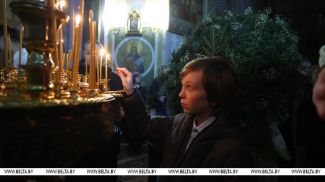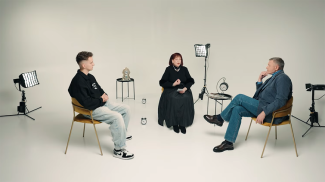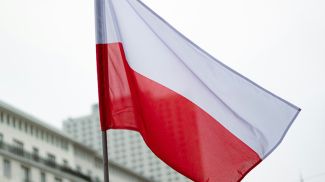MINSK, 23 November (BelTA) – Refugees in Belarus get all the necessary medical aid, including in out-patient conditions and in stationary ones. WHO Regional Director for Europe Hans Kluge made the statement after he met with Chairwoman of the Council of the Republic of the National Assembly of Belarus Natalya Kochanova on 23 November, BelTA has learned.
The WHO representative said: “First of all, I have to express my gratitude to the Belarusian government for organizing unhindered access to the territory of the logistics hub. We could talk to absolutely everyone, learn about their needs, and organize the delivery of aid right away. We've brought essential items with us. A major batch of medical kits will be delivered tomorrow. We will provide all kinds of assistance upon the Healthcare Ministry's requests later on. We've agreed the sequence of actions. The organization and provision of primary medical aid comes first. An ambulance is stationed at the logistics hub. Now we have to organize medical monitoring in order to provide targeted aid to various categories. There are people with certain risk factors, with chronic diseases. There are pregnant women and there are kids. Preventing the spread of COVID-19 will be the second step since a large number of people staying in closed space represents a threat.”
According to the WHO regional director for Europe, COVID-19 express test kits will be delivered to the refugee camp soon. “We don't need to simply distribute means of protection. Belarus has the resources for it. A large number of masks and the rest have been distributed. But it is necessary to step up epidemic control measures on the spot. Psychological wellbeing is another important matter. The Healthcare Ministry has assured us that the Grodno university, in particular, the psychology faculty can help address all the matters concerning psychological wellbeing at any time. Then there are sanitary and hygienic conditions. Opportunities will be created to allow people to take a shower so that the people could take care of personal hygiene. Certain actions have been planned and are being taken,” he noted.
In addition to the refugee shelter Hans Kluge visited a number of healthcare institutions in Grodno. “I visited a perinatal center, a child care clinic, a medical emergency hospital. I talked to doctors, medical workers, and patients. I saw with my own eyes how migrants and children get aid in clinics and hospitals. Belarus has a very sturdy healthcare system. This is why the role of the World Health Organization is limited to sharing know-hows and cutting-edge practices. Belarus has resources and capabilities but we will also help attract external financial and material resources. I'd like to sincerely thank all the social workers, nurses, doctors, and Belarus' Red Cross for the huge work. They are highly trained professionals. I bow low before them for that,” the World Health Organization representative stated.













